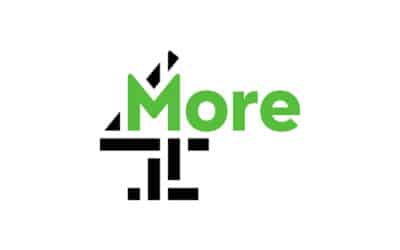Gareth Lloyd is a junior account manager at international PR agency Jargon PR.
Founded in 2009, Jargon PR works with clients including Horseman Coaches, Audatex and Roberts Bakery.
Gareth joined the agency in 2022, following numerous roles working across journalism, copywriting and marketing including as the former deputy editor at The Manc Group.
Working at Jargon PR’s office in Manchester, he shared his career journey, tips and advice.
How did you first get into your industry?
I studied English and Screen Studies at the University of Manchester, before completing a postgraduate programme at Aberystwyth University. Favouring the city over the seaside, I returned to a burgeoning Mancunia in 2015 and initially set up on my own as a freelancer before going on to work full-time for various publications, copywriting houses and marketing agencies, earning my NCTJ certificate in my spare time.
During those years I repeatedly brushed up against PR – learning bits and pieces about the industry in the process. After completing some consulting and press release work for a PR agency, I took the plunge into the industry with Jargon PR.
What do you love about your job?
The variety. When I was a journalist, every new day involved attempts to create a new story on a new topic involving new people – which has prepared me well for a career in PR where each day is alien to the last. At Jargon PR, I work across a variety of accounts and they are all utterly unique – with tactics, tasks and targets differing from one client to the next. Between thought leaders, case studies, press releases, interviews, strategy planning, and awards submissions, there is always a fresh task ready and waiting.
Who – or what – has inspired you in your career?
I think it’s important to have someone to look up to – whatever organisation you might be part of. I’ve been lucky enough to have a couple of great managers and teachers over the years who have pushed me to become a better version of myself. Both in journalism and PR, an engaged editor – someone who will pore over your piece and have a discussion with you about what works and what doesn’t – is worth their weight in gold.
If you’re ever lucky enough to have an editor that truly collaborates with you on pieces rather than skim-reads, take advantage of their support as much as you can. We have a great leadership team here at Jargon PR right now and I am still learning something new almost every day – knowledge which I am passing on to junior members of the team to help accelerate their own progress up the ladder.
What are the biggest challenges about your job?
From the moment the clock ticks past 09:00am on Monday morning, the pace is rapid. Within a matter of minutes you’re bouncing between projects, spinning plates, and watching the tabs accumulate on your laptop to the point where they seem set to tumble off the screen and plop into your morning coffee.
The key is being prepared. Getting your ducks in a row on a Friday for the following week is a good place to start. Staying on top of everything involves utilising all the help that’s available from the company in terms of internal resources – whether that’s drafting actions to team-mates in Slack, picking through LeavePlanner to determine what the staff roster/agency capacity looks like, or arranging all your meetings effectively in Google Calendar. You never know what might come in on a Monday morning – but if you’re prepared, you can handle whatever gets thrown at you.
What skills have been the most crucial to you succeeding in your career so far?
Organisation is absolutely essential – not just for managing your days, but also balancing your mind-set. The better organised you are, the calmer and more confident you will be – armed and ready to take on tasks or respond to requests without having to sacrifice another duty.
Being willing to ask questions is also an underrated skill. PR is absolutely packed with meetings – and whilst the easy option is often to nod along, the better alternative is to raise your hand when something is not clear. Instead of simply signing off with a goodbye, clarifying actions – just to make sure you’ve got it right – can keep everyone on the same page. A lot comes at you thick and fast in this industry. And the ones who ask questions are those who seem to thrive.
What was your first salary and what could someone getting into the industry expect to earn nowadays?
I started out as a freelance writer and at the beginning I snatched every job going in an attempt to boost the bank balance. I worked on such a plethora of projects across so many different industries that I ended up with a healthy portfolio of work in journalism, PR, marketing and copywriting that opened a few doors. I came into PR via an unusual route to many others, but most will enter the sector fresh out of university and can expect to earn somewhere in the region of £20,000, give or take – but this does alternate between agency and has the potential to shoot up if you perform to a high standard.
What education or training would be most useful for someone looking to follow your career path?
Any journalism, PR or marketing qualifications will play a significant role in helping you gain a footing in the industry. At Jargon PR, all our staff can be enrolled onto Chartered Institute of Public Relations (CIPR) courses – offering vital insight and support that can steer them to becoming accredited PR practitioners – and take advantage of Public Relations and Communications Association (PRCA) training and development resources.
What advice would you have for someone looking to follow your path?
Be proud of all the work you do – and the projects you contribute to – and treat every achievement like it’s a treasured trophy: Save it, store it, and show it off. Portfolio websites offer you a means to put all your projects in a single space which you can easily share with prospective employers and use as a powerful introductory line in your CV.
Take your time to organise your portfolio whilst making it look attractive and easy to navigate. It’ll play a big role in helping you land an interview. Lastly, if you can prove to prospective employers you’re already taking steps to learn about the industry – either by reading material online or enrolling in a course – you’ll immediately put yourself among the top candidates for any junior roles.









